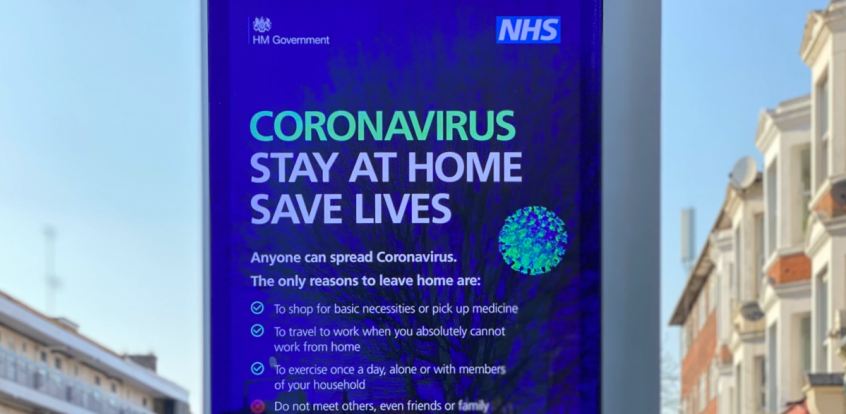
At the beginning of lockdown I gave some advice and information to people who pastor churches. I said that those with disabilities will be struggling with many things: loss of services due to the Coronavirus Act removing the legal obligation of local authorities to provide necessary care; fear of not receiving active treatment if they became ill due to blanket 'do not resuscitate' orders; and anxiety around almost everything to do with lockdown and health.
I also said that many children with additional needs were being abandoned as a result of all services being withdrawn and the promise of being able to remain in school not materialising.
So what was the reaction to this advice? Ridicule, disbelief and patronising replies telling me why this couldn't possibly be the case. Fast forward to the last week and what do we see in various news outlets? Articles about how many disabled people have died as a result of the virus.
The number is staggering: about two-thirds of fatalities from Covid-19 from March to mid-May were people with disabilities. That is more than 22,000 deaths. Many of these people would have had a normal life expectancy without Covid-19. Because these numbers are based on the 2011 census, they are probably lower than the reality.
As a woman with disabilities under 60, it seems I am 11 times more likely to die of this virus than a non-disabled woman. For those with learning disabilities the number is probably as bad but the data on this is hard to extrapolate, although research in America shows this is likely.
Blanket 'do not resuscitate' orders happened in homes for young adults with learning disabilities, despite the government revising the advice on this, and were not lifted.
And numerous articles saying 76% of additional needs families felt totally abandoned, plus others that said schools were using risk assessments as a reason not to allow children with additional needs back into their classes.
In other words, everything I was ridiculed for saying really did happen.
Where has the church been for those with disabilities during this pandemic?
Well, it's been in various places ... and more accessible services online has not been the only space they've been in. It has been there in the food banks too – something disabled people are more likely to need than non-disabled people.
They have been collecting and delivering food for disabled people who should have been on the shielding list but were forgotten or had the 'wrong type' of disability, and so did not qualify for delivery slots.
Many churches have risen to a challenge they should have risen to years ago. Some churches have started to question their accessibility too.
But, the national Church of all denominations has been totally silent on the injustices faced by 20% of the population during this pandemic, and also on the many injustices faced over many difficult years of cuts, rises in hate crime and discrimination in the workplace and high streets.
The Church has publicly examined the many wrongs BAME communities have faced over generations, but no one has looked at the many similar injustices faced by those with disabilities. And from what I can see, no one is interested in doing so. The Church has a long history of ignoring the plight of so many disabled people in their communities and not doing anything about it.
I am hoping this will change, but from experience, it's only a glimmer of hope.
In the meantime, ask your MP the difficult questions, speak up in the public places, and shake the churches by asking what they are going to do.
'Stand' with us, 'shout' with us and speak out.
Kay Morgan-Gurr is Chair of Children Matter and Co-Founder of the Additional Needs Alliance, part of the Evangelical Alliance Council. For more, www.kaymorgangurr.com and on Twitter @kaymorgan_gurr
Views and opinions published in Christian Today are those of the authors and do not necessarily reflect the views of the website.













